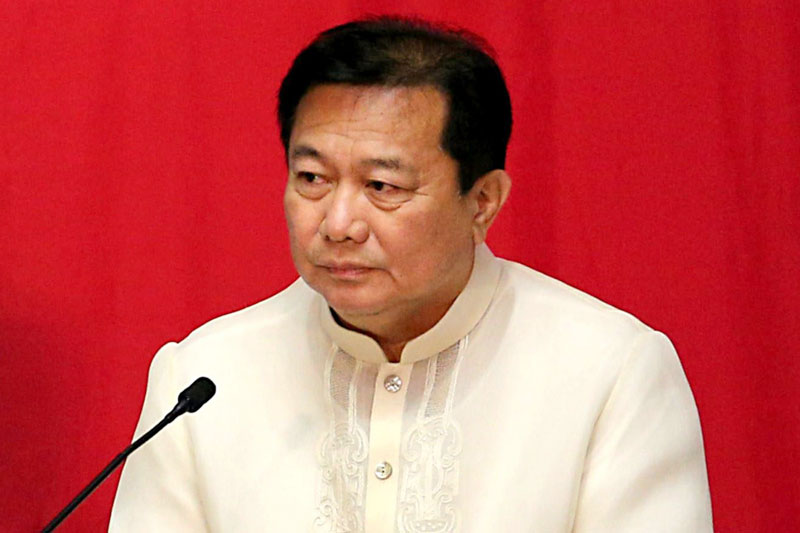Appropriations panel endorses reduced budget for judiciary

MANILA, Philippines — The committee on appropriations of the House of Representatives has endorsed a reduced budget for the judiciary amounting to P34.4 billion for next year without much scrutiny.
Cagayan de Oro City Rep. Rufus Rodriguez’s motion for the expeditious approval of the outlay for the Supreme Court (SC) and lower courts capped Wednesday night’s budget hearing by the committee chaired by Davao City Rep. Isidro Ungab.
Rodriguez said the judiciary should be accorded “traditional courtesy because like the executive branch, it is a co-equal of Congress.”
He also called for increasing the judiciary budget, saying “It is less than one percent, .82 percent to be exact, of the proposed P4.1-trillion spending program for 2020.”
“Most countries allot two to three percent of their entire budgets to their courts. That’s why an augmentation is justified,” he said.
Under the National Expenditure Program (NEP), which is the budget proposed by President Duterte to Congress, the SC and lower courts (from regional trial courts down) will have P34.397 billion for 2020.
The amount is lower by P11 million from this year’s P34.408 billion. Last year, the high tribunal and lower courts had P31.4 billion.
The Presidential Electoral Tribunal or PET, which is the SC itself, Court of Appeals, Sandiganbayan and the Court of Tax Appeals (CTA) have their own budgetary allocations.
The President recommended P137.5 million for the PET, P809.7 million for the Sandiganbayan, P2.9 billion for the appellate court and P481.3 million for the CTA.
The entire judiciary will have a total funding of P38.7 billion for next year.
Of the P34.4 billion for the SC and lower courts, almost P28 billion will be for salaries, P5.2 billion for maintenance and other operating expenses (MOOE) and P3.6 million for capital outlay.
The SC, together with lower courts, is realizing savings from funds for salaries since it has 12,383 unfilled positions.
Of the high court’s P5.2-billion MOOE allocation for 2020, P1.8 billion will be for supplies and materials, P421 million for utilities, P339 million for “extraordinary and miscellaneous expenses,” P323 million for repairs and maintenance, P276 million for travel, P275 million for “professional services,” P221 million for training and scholarship, and P242 million for rent.
Like political offices such as the Office of the President (OP) and Office of the Vice President (OVP), the SC has provisions for “financial assistance/subsidy” amounting to P130 million this year and P61 million for 2020.
The OP has P17 million in such funds this year and nothing for next year. The OVP has P397 million this year for financial assistance/subsidy dole-outs and P377 million for 2020.
In his budget message to Congress, President Duterte took pride in proposing a total of P38.7 billion for the entire judiciary.
“We have ensured that the judiciary will retain one of the biggest budgetary allocations for 2020. The judiciary will rank as the ninth biggest recipient department of the national budget,” he said.
Duterte said the outlay includes P1.2 billion for the construction of new halls of justice, including those for Lapu-Lapu City in Cebu, Tagbilaran in Bohol, Calamba in Laguna, San Jacinto in Masbate and Zamboanga Sibugay.
TESDA seeks higher budget
The Technical Education and Skills Development Authority (TESDA) yesterday sought an increase in its proposed P11.85-billion budget for 2020, citing lack of funding for its key projects.
TESDA director general Isidro Lapeña asked the House appropriations committee for an additional budget of P2.8 billion to cover its programs, including the Tulong Trabaho under the recently signed Republic Act 11230.
Lapeña told the House panel that his agency sought P19.9 billion for next year, but the Department of Budget and Management (DBM) recommended only P11.851 billion in the proposed NEP submitted to Congress, which is six percent lower from TESDA’s P12.555-billion budget this year.
He lamented that the DBM-approved proposed budget does not include the P1.5 billion required for the implementation of the Tulong Trabaho law.
Bagong Henerasyon Rep. Bernadette Herrera-Dy, one of the authors of the measure, questioned the lack of appropriation for the program, which she said could be a violation of the law.
RA 11230 specifically mandates budget allocation to finance the scholarships of workers for training programs as needed by industries.
Lapeña complained that the DBM approved only 10 of the 63 mobile training laboratories they originally proposed for 2020 for the training of indigenous peoples in far-flung areas. From P536 million, the DBM only allotted P50 million for this project.
In the P11.85-billion budget for TESDA next year, P49.76 million will be allocated for the technical education and skills development policy program and P84.25 million for the regulatory program, while P11.3 billion is earmarked for the technical education and skills development program.– With Edu Punay
- Latest
- Trending



























